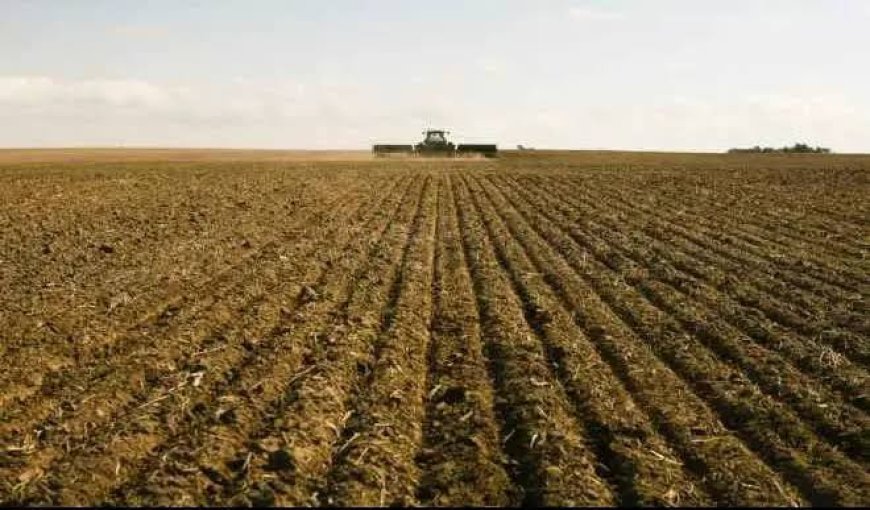Exploring the Impact of Teacher and Infrastructure Shortages on Primary Education in Bauchi: How Pupils Have Turned to Agriculture for an Education
This article explores the lack of teachers and inadequate infrastructure in Bauchi, Nigeria, that has caused the closure of primary schools, forcing the pupils to turn to farming for a living. We highlight the rising trend of cropping and herding amongst these young children, the academic implications and how the government can step in to encourage the return of these vulnerable children back to school.

"The only public primary school in my community has been closed for over five years due to a lack of teachers. Since a rainstorm damaged the roof of the school, we have not been able to find qualified teachers to reopen the school. This has left our children without access to education, limiting their future opportunities and potential," said Abubakar Musa.
Musa, a concerned parent from Jamdan Kogi village in Bauchi State, expressed his frustration with the lack of primary schools in his community. He explained that not only his village but also three nearby communities have been deprived of primary education for a significant period of time.
The village head, Malam Yusheu Usaini, shared his concerns, stating that the primary school, which was built 65 years ago and once produced many successful individuals, is now non-functional. He made an appeal to the government to rebuild the school and provide teachers to ensure that the children receive the education they deserve.
Unfortunately, the issue of closed primary schools is not limited to Jamdan Kogi village alone. Many communities in Bauchi State are facing the same problem, as public primary education is on the verge of collapse. This is due to a lack of qualified teachers, dilapidated infrastructure, and inadequate remuneration for existing staff.
Investigations have revealed that numerous primary schools in the state, particularly in rural areas, have closed down due to a lack of teachers or abandoned because of deteriorating buildings. Surprisingly, the state government has not recruited any teachers since 2015, despite the unfortunate deaths of many teachers over the past 12 years. As a result, several public primary schools are now being run by volunteer teachers hired by community development committees or individuals who are battling to attract students.
One teacher, who wished to remain anonymous, highlighted that the recent removal of subsidies by the federal government, which led to an increase in petrol prices and transportation fares, has made it difficult for teachers to commute. Many teachers struggle to meet the needs of their families and cannot afford transportation to remote villages where they teach. Consequently, some teachers have abandoned their posts in search of other employment opportunities.
The dire situation of primary education in Bauchi State is further exacerbated by the closure of classes by some head teachers under the pretense of a lack of teachers, discouraging parents from sending their children to school. Additionally, dilapidated school infrastructure has turned many schools into dumping grounds or even criminal hideouts.
The Director of School Services of the State Universal Basic Education Board (SUBEB) in Bauchi, Korijo Usman, provided some insight into the situation. He revealed that there is an average of 72 students per class, significantly higher than the recommended 1:35 teacher-student ratio. Many schools only have one teacher, and in some cases, no teacher at all.
The challenges don't end there. Dilapidated infrastructure, lack of toilets, poor construction work, and inadequate furniture and fencing pose significant risks to the safety and well-being of pupils and staff.
Governor Bala Mohammed acknowledged the failures in the education sector and expressed his disappointment in the State Universal Basic Education Board (SUBEB) and Local Government Education Authority (LGEA) secretaries for their lack of progress in improving education. He criticized the poor quality of work done on school buildings and the inadequate supervision by SUBEB.
The Bauchi SUBEB has acknowledged the shortage of teachers and the need to address the problem. Efforts are being made to employ more teachers, with approval already given by the state governor. The board is also implementing programs sponsored by the Universal Basic Education Commission (UBEC) to recruit more teachers.
The issue of dilapidated infrastructure is attributed to vandalism and the negligence of host communities. The board has urged communities to take responsibility for protecting and preserving school infrastructure.
Despite the challenges, some progress has been made in reducing the number of out-of-school children in Bauchi State through initiatives like the Bauchi Education Support Programme (BESDA).
It is crucial for the government, community leaders, and individuals to work together to address these challenges and ensure that every child in Bauchi State has access to quality primary education. The future of the children and the development of the state depend on it.








